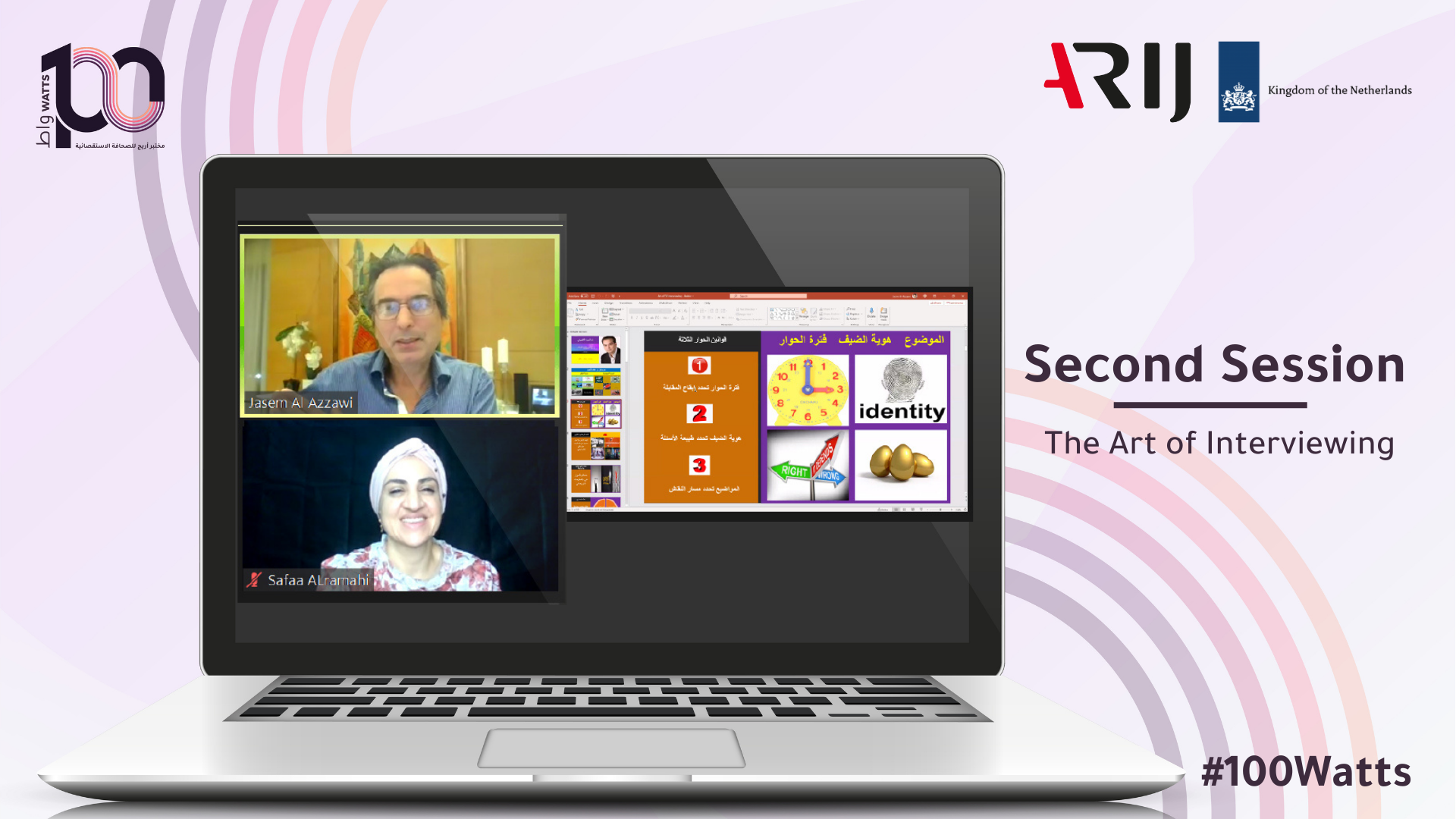Amman- 26 May 2021
The second webinar under the “100 Watts” journalism training program, addressed the art of interviewing and the criteria for a successful interview, providing guidance for media professionals on how to conduct a successful interview.
“100 Watts” is a three-year project launched by ARIJ (Arab Reporters for Investigative Journalism) network with the support of the Embassy of the Kingdom of the Netherlands in Jordan. The project aims at training more than 100 journalists, content creators, journalism and media students, and professors in Jordan on digital storytelling with a focus on audio storytelling that addresses vital societal issues in Jordan, to promote accountability and reform.
The webinar, held on 26 May 2021, was presented by media trainer Jasim Alazawy and moderated by ARIJ trainer Safaa Alramahi.
Alazawy started the session with a quote by French author, Voltaire: “Judge a man by his questions, rather than his answers”, saying this rule applies to journalists, because asking questions is a key part of their profession.
Alazawi explained the main rules that govern the interview: the duration determines the rhythm of the interview, and the identity of the guest determines the nature of the questions. “The question directed to an official differs from that directed to a university professor,” he said. In addition, the subject of the interview determines the course of the discussion from beginning to end.
About the criteria for successful interviews, Alazawi stressed the importance of developing a flow during the discussion, objectivity, consistency, and covering all aspects of the subject.
Responding to a question raised by one of the participants about guests who deliberately dodge and avoid answering questions, the media trainer emphasized that even dodging is part of the art of interviewing, as it provides a great space for the interviewer to press the guest and practice questioning and dialogue skills.
He also stressed the necessity of framing the question with an information or a situation, and avoiding questions like: do you think? or how do you feel? In order to facilitate the guest’s response and not to assume the guest has all the answers.








